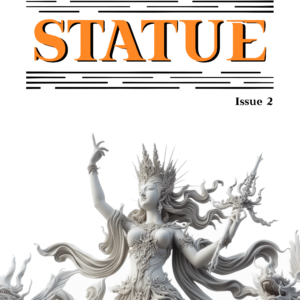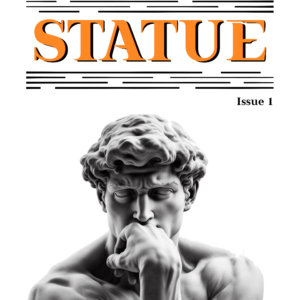Welcome to Literary Legends, articles in which we explore classic authors. If you are interested in more modern fiction, why not check out our Sensational Series articles here?
Anna Akhmatova, one of Russia’s most revered poets, left an indelible mark on literature with her profound and poignant exploration of personal and collective suffering, her masterful command of poetic form, and her resilience in the face of political oppression. Born Anna Andreyevna Gorenko in 1889, Akhmatova became a central figure in the Russian literary scene of the early 20th century and endured through the turbulent years of the Soviet regime. Her work, which spans themes of love, loss, and political repression, has had a lasting impact on literature, influencing both her contemporaries and subsequent generations of poets and writers.
“If you were music I would listen to you ceaselessly, and my low spirits would brighten up.”
Anna Akhmatova
Akhmatova’s early work is characterised by its focus on personal themes and its concise, lyrical style. Her first major collection, “Evening” (1912), and its successor, “Rosary” (1914), established her as a leading voice in Russian poetry. These collections are marked by their emotional intensity and their exploration of themes such as love, longing, and betrayal. Akhmatova’s ability to convey deep emotional experiences in a few, carefully chosen words was revolutionary at the time and contributed to her early acclaim. Her use of vivid imagery and precise language set her apart from her contemporaries and cemented her reputation as a master of the lyric form.
Sociopolitical Awareness
As Akhmatova’s career progressed, her work began to reflect the broader social and political upheavals of her time. The Russian Revolution and the subsequent civil war had a profound impact on her poetry, as did the repressive policies of the Soviet regime. Akhmatova’s most famous work, “Requiem,” written between 1935 and 1940, is a stark and harrowing depiction of the Great Terror under Stalin. This cycle of poems, which was not published in Russia until 1987, is a powerful testament to the suffering of the Russian people during this period. Through her portrayal of personal grief and collective trauma, Akhmatova gives voice to those who were silenced by the regime.
“Requiem” is notable not only for its emotional power but also for its innovative use of form and structure. Akhmatova employs a variety of poetic techniques, including repetition, fragmentation, and juxtaposition, to convey the fragmented and chaotic nature of life under totalitarian rule. The work’s structure, which shifts between personal reflection and collective lament, mirrors the dual nature of the poet’s experience as both an individual and a representative of her people. This blending of the personal and the political is a hallmark of Akhmatova’s poetry and is one of the ways in which she transformed the lyric form to address the crises of her time.
Continental Influences
In addition to her contributions to the lyric form, Akhmatova’s work is characterised by its engagement with the broader literary tradition. She was deeply influenced by Russian and European literature, and her poetry is rich with allusions to the works of poets and writers such as Pushkin, Dante, and Shakespeare. This intertextuality adds depth and complexity to her work and situates her poetry within a larger cultural and historical context. Akhmatova’s engagement with the literary tradition is not merely an academic exercise; it is a means of grappling with the existential questions that her own historical moment posed.
An Icon of Integrity
Akhmatova’s impact on literature extends beyond her own poetry. Her resilience in the face of political persecution and her commitment to her art in the most adverse circumstances have made her an enduring symbol of artistic integrity and moral courage. Despite facing censorship, harassment, and the loss of friends and family members to the purges, Akhmatova continued to write and to bear witness to the suffering of her people. Her courage and determination have inspired countless writers and artists, both in Russia and around the world.

Moreover, Akhmatova’s work has had a significant influence on the development of modernist and contemporary poetry. Her use of concise, evocative language and her focus on the inner lives of her characters anticipated many of the techniques later employed by modernist poets such as T.S. Eliot and Ezra Pound. At the same time, her engagement with the political realities of her time and her willingness to confront the most difficult aspects of human experience have resonated with contemporary poets who seek to address the social and political issues of their own times.



